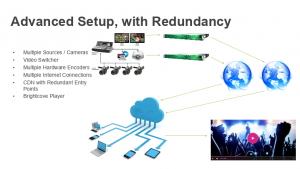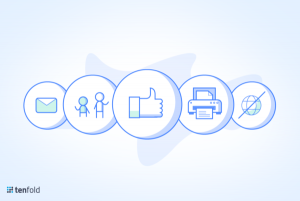— November 2, 2018
Today we are going to talk about connecting the dots, and no, we don’t mean connecting the dots in a coloring book. We are talking about something much more complex. The topic is about connecting the dots in our brain to turn our intelligence into action and outward creativity.
Despite what we have always believed, knowledge is not something that’s stored in one part of the brain. One study revealed that “intelligence” is scattered throughout our brain. As such, we need to learn how to connect those dots to make the most of what we know and the things that we learn on a daily basis.
Besides physical connections, there is also a link between the things that we learn and our memories. We have to learn to connect these two factors if we want to make the most of the creativity stored in our brain
Artists, scientists, and the like are all people who have strong connections inside their brain. They are able to take experiences and connect them to other parts of their brain, or their knowledge, in new and exciting ways. Today we are going to look at ways you can start linking together the knowledge and experience inside your brain.
Take Notes
The first thing you should do if you want to build better connections in your brain is take notes — constantly. There’s no excuse to not take notes anymore. We all have smartphones, or at worst, pocket notebooks. Plus, there are plenty of note-taking applications you can get for both your phone and laptop.
If a good idea pops in your mind, write it down. There are multiple benefits to writing things down. First, you’ll get better at remembering things. The Association of Psychological Science determined that students who write things down, tend to remember more than those who decided not to write notes.
You also tend to learn more when you write things down. Learning more and physically seeing the information in your mind helps you build connections in your brain.
Read Every Single Day
Reading every single day is absolutely necessary for a strong brain with plenty of connections. There are massive amounts of research showing that when you read, your brain is able to grow and is reshaped by the experience.
College professor and author, Maryanne Wolf summed up the importance of reading and the impact it has on the brain in her book: The Story and Science of the Reading Brain. In the book, she says:
“Human beings invented reading only a few thousand years ago. And with this invention, we rearranged the very organization of our brain, which in turn expanded the ways we were able to think, which altered the intellectual evolution of our species. . . .”
You don’t have to spend all day reading, obviously, we are all busy people nowadays. Between work, family, and social activities with our friend you might be hard pressed to find time to read. Do yourself a favor and put at least half an hour aside every day to read. Maybe take the time in the morning if you’re a morning person, or take half an hour at night if you’re a night owl.
The simple process of reading expands your knowledge and starts making new connections in your brain.
Take Part in New Experiences
Another way you can make new links in your brain is by having new experiences. It makes sense if you are learning something new you’re putting new data in your mind. Think of it like Lego building blocks. The more experiences you have, the more blocks you gain. If you have enough blocks you can build just about anything.
The connection here comes from linking your current experiences with past experiences. You’ll begin to see things in a different way as you gain more knowledge. This effect is your brain being reshaped by the world around you.
New experiences do not have to be particularly expensive or drawn out. You could do something as simple as paint a picture, or learn how to code, perhaps create a blog and learn all the functions, or take free online classes.
If you have the time and resources you could always travel, which has proven to be a great way to expand your knowledge about the world. Many people enjoy traveling because it gives them different perspectives on culture
It doesn’t matter how you decide to do it, just make sure you add more new experiences to your life. There is much to see, and many ways to learn and make more connections in your brain.
Conclusion
There’s no doubt that learning new things expands your knowledge. As you go through life, you’ll read new books, meet new people, and experience new things. These are all things that help make new connections in our brain.
If you want to let your creative juices flow, you can actively pursue more experiences in your life. The connection between these experiences and our knowledge is undeniable. Actively learning new things is not just important for children, as adults, we need to continue this hunt for new information.
There’s no limit to the connections in our brain, though it’s impossible to learn everything in one lifetime. That shouldn’t stop you from doing the best you can to learn and engage with as many people and experiences as possible in your day to day life.
Business & Finance Articles on Business 2 Community
(40)
Report Post





